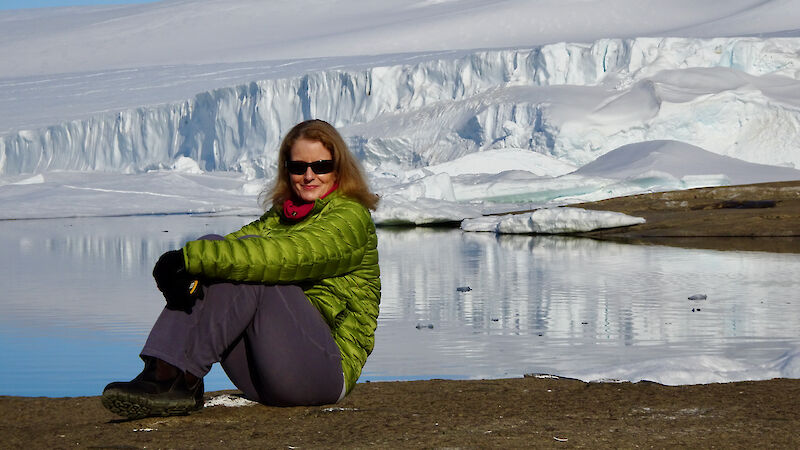The prestigious Australian Antarctic Medal has been awarded to a geoscientist and medical practitioner in recognition of their outstanding service to the Australian Antarctic Program.
The two medal recipients were today announced by the Governor-General of Australia, Her Excellency the Honourable Ms Sam Mostyn AC, as part of Midwinter celebrations.
The Australian Antarctic Medal, previously called the Antarctic Medal, is awarded for outstanding service in scientific research or exploration in connection with an Australian Antarctic expedition, or for support of such work.
The 2025 recipients of the Australian Antarctic Medal are:
Geoscientist, Dr Chris Carson
Dr Chris Carson has dedicated several decades to Antarctic geoscientific research, exemplifying exceptional leadership and innovation in advancing Australia's Antarctic Program.
His service spans numerous summer field seasons in remote locations, expert guidance aboard research and tourist vessels, and leadership roles at Geoscience Australia, the University of Sydney, and the University of Melbourne.
A hallmark of Dr Carson's career is his pioneering work on the Stornes Peninsula, Larsemann Hills. His research, in partnership with international colleagues, led to the discovery of new minerals and provided crucial insights into Antarctica's ancient geological history. This work was instrumental in the designation of Stornes as an Antarctic Specially Protected Area (ASPA) one of only a handful established for geological significance.
"A key part of this work was the support of the Australian Antarctic Division, who presented the case for Stornes Peninsula to be declared an ASPA through the Antarctic Treaty System," Dr Carson said.
"It is one of the few ASPAs primarily based on its intrinsic geological scientific value, rather than biological or heritage values.
"I consider this my most important contribution to Australia's commitments to environmental protection."
Dr Carson was the driving force behind the creation of the SCAR Action Group and later Expert Group on Geological Heritage and Geo-conservation. He has fostered vital collaborations that have resulted in improved bathymetric mapping and safer Antarctic navigation. He also co-led the Antarctic Field Notebooks Project, digitising decades of field records and making them accessible to the global scientific community.
"I am surprised, humbled and honoured by this award," he said.
"I have worked with many people who are no less deserving of such an award. I'm honoured that I had the privilege of working with these dedicated people, who enabled my small contribution to support Australia's commitments and objectives in Antarctica, and helped preserve this special place for future generations."

Medical practitioner, Dr Jan Wallace
Dr Jan Wallace has been a pioneering force in Antarctic medicine, with a career spanning over 40 years as a general practitioner, remote medicine specialist, educator, and mentor.
She has served across all Australian Antarctic stations, Macquarie Island, and aboard Antarctic vessels, providing medical care in some of the world's most remote and challenging environments. Her roles have included not only direct clinical care, but also leadership in research, education, and support for both expeditioners and fellow medical practitioners.
Dr Wallace's research into first aid training for expeditioners directly shaped the Australian Antarctic Division's first aid program, resulting in improved safety and operational protocols.
She has guided generations of Antarctic medical practitioners and inspired many, including future doctors and women in medicine, to pursue careers in remote and expeditionary healthcare.
"I felt quite overwhelmed and emotional that my fellow expeditioners considered me worthy of a nomination," Dr Wallace said.
"I am particularly proud that the medal citation mentions that my research into expeditioner first aid training has improved safety for our teams down south."
Dr Wallace's dedication, compassion, and pragmatic leadership have helped set the standard for Antarctic medical care, strengthened the wellbeing of the Australian Antarctic community, and ensured the next generation of practitioners are well prepared for the unique challenges of polar medicine.
"Receiving this honour is the cherry on top of my amazing Antarctic journey over many years, which would not have been possible without the hard work and dedication of many others in the Antarctic family," she said.







